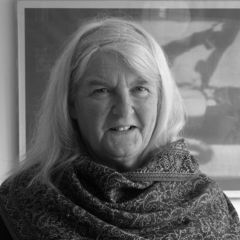Anglo-Saxon, Norse, and Celtic
Anglo-Saxon, Norse, and Celtic (ASNC) is a course about the history, culture, languages and literature of the British Isles and Scandinavia from the fifth to eleventh centuries.

Course overview
No other university course offers the range of options available in Anglo-Saxon, Norse, and Celtic (ASNC) at Cambridge. Our degree allows students to place the emphasis of their studies where they please. Most will select a combination of historical and literary options: budding historians will learn to handle evidence and to read primary sources in the original languages, and students interested in language and literature will learn to place literature in its historical context and to study it against its cultural background. It is also possible, however, to select a range of mainly historical or mainly literary and linguistic courses, or to concentrate on either the Celtic or Germanic peoples.
For more information about the course and its modules, visit the University website.
What is it like to study ASNC at King’s?
What your week would look like very much depends on what subjects you study with us! For each literature paper, students will typically have one hour of language teaching and one literature lecture per week, while the history papers tend to have one lecture per week. You will also have supervisions in your chosen papers, which are one-on-one sessions where you talk about an essay you’ve submitted beforehand with a specialist in that subject. Many of our students also take courses in modern Icelandic and Irish language offered by the Department. ASNC has a very lively student cohort, with around twenty students in each year group across the University. You will learn a lot from speaking with students who are as passionate as you are about Tolkien, the Icelandic sagas, early England, or Welsh poetry! The ASNC Department is located in the English Faculty building on the Sidgwick site, just over the bridge from King’s. At its centre, encircled by your professors’ offices, is the ASNC common room: a lively space where ASNC students study and socialise together.
What do we look for in an applicant to ASNC?
A few students may come to Cambridge with some knowledge of medieval history, or of Welsh or Latin, but in general no previous knowledge of the subjects studied is expected or required, and all the subjects, languages and histories, are (or can be) approached from scratch. Evidence for real ability in humanities subjects and enthusiasm and motivation for the academic study of our subject area is all that is required.
Requirements
A Level: A*AA
IB: 41-42 points overall with 7, 7, 6 at Higher Level
Subject requirements: While none are required, many students find subjects such as English (language or literature), History, a modern or ancient language, or other humanities subjects helpful
Admissions assessment: None
Written work: 2 pieces
Careers and graduate opportunities
Like any other degree course in the humanities (such as English, History, or Classics), the ASNC degree aims to provide an extension of your education which you will enjoy and an intellectual training which will equip you with useful skills. Our graduates are undaunted by complexity and can synthesise and interpret information drawn from a wide range of sources. You may wish to apply and develop these skills in further academic work (MPhil and PhD), with many of our students who take this path later pursuing careers in teaching and research in universities, libraries, and museums. Other students move on into a very wide range of interesting professions in publishing, the civil service, banking, information technology, the film industry, marketing, public relations, journalism, law, business, and, frankly, in almost anything else. We hear stories from our alumni that interviewers tend to latch on to 'ASNC' in their CV, regarding it as an interesting talking-point, and as a sign of an enquiring and original mind!
What is the best thing about studying ASNC at King’s?
At King’s, our students are handily close to the Department. Despite ASNC being one of Cambridge’s smallest subjects, King' s students have easy access to two stimulating communities.
A top tip for applicants to ASNC at King’s
No previous knowledge of our subjects is expected or required. What we do look for is real interest in what we do. This can evidenced by your wider reading, experiences you’ve had (like visiting historical sites), and things you’ve learned. We’re interested in students who are interested in how languages work, and have thought about the histories of the words or dialect terms they use.
The Director of Studies for 2025-2026 is Dr Dale Kedwards.



